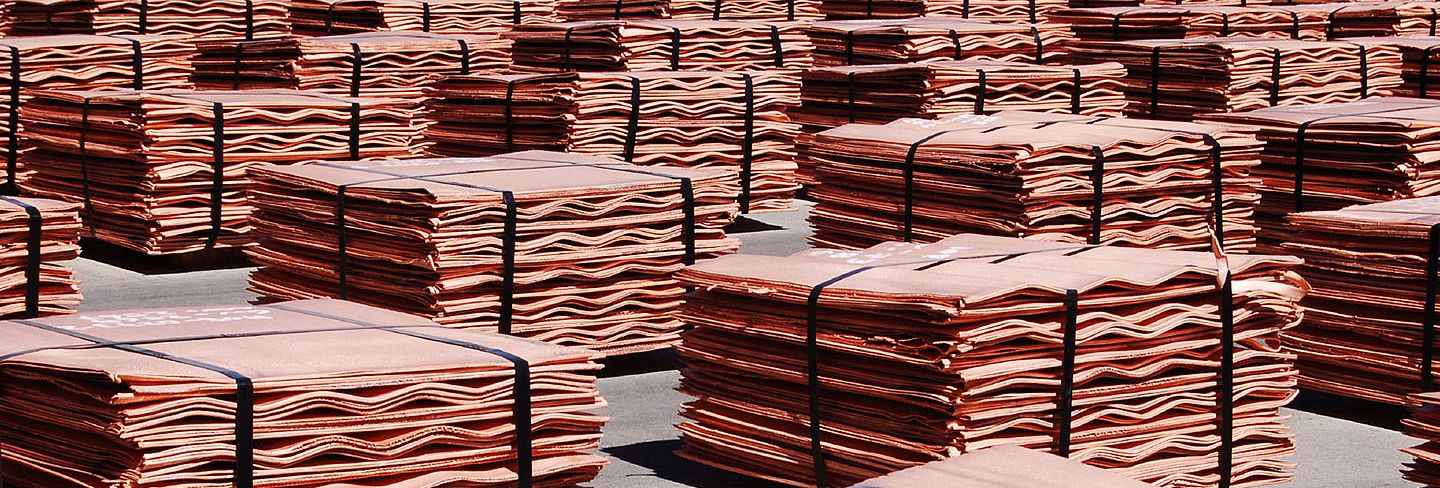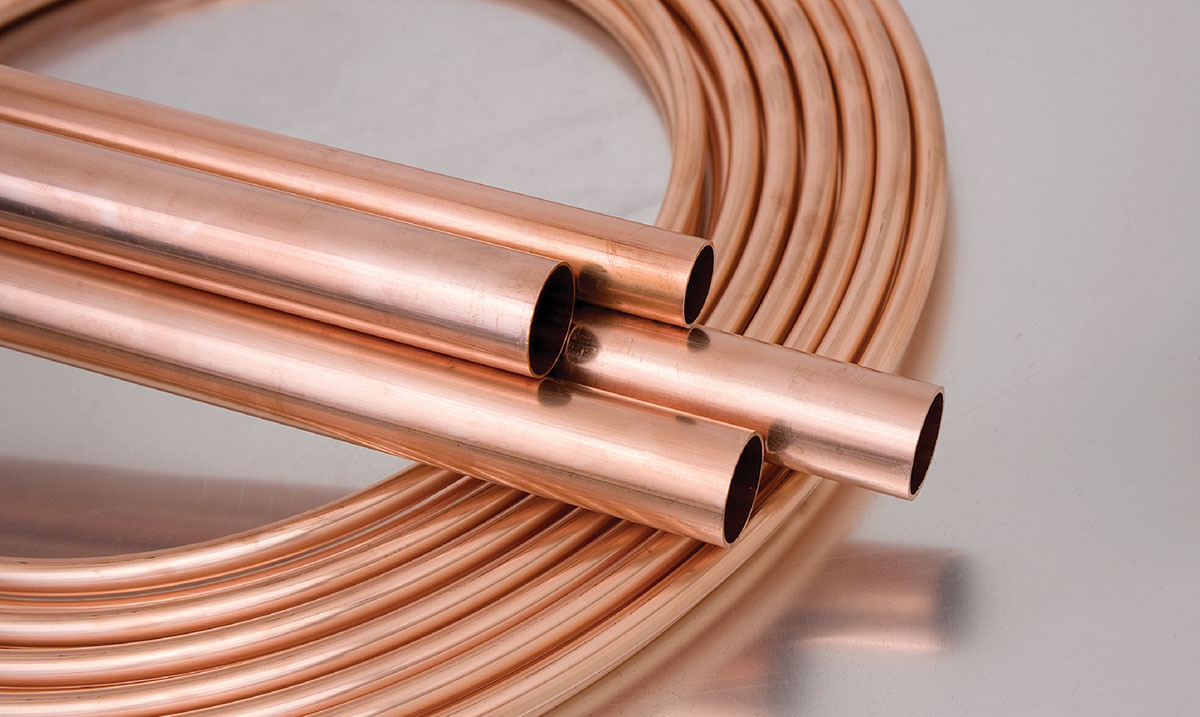Boost Your Workmanship with High-Performance Copper Products for Artisans
Boost Your Workmanship with High-Performance Copper Products for Artisans
Blog Article
Exploring the Diverse Applications of Copper Products in Modern Industries
Copper items have established themselves as indispensable parts throughout a myriad of modern-day markets, mainly as a result of their remarkable conductivity, pliability, and resistance to rust. From enhancing the performance of electrical systems to playing a crucial duty in renewable resource modern technologies, the adaptability of copper is apparent. Its recyclability positions it as a lasting selection in manufacturing and electronic devices. As industries increasingly prioritize advancement and sustainability, the diverse applications of copper call for a closer exam, specifically regarding their possible effect on future environmental techniques and technical developments.
Electrical Applications of Copper
Copper is a necessary product in the electrical sector, accounting for approximately 60% of the total demand for non-ferrous metals globally - Copper Products. Its exceptional electrical conductivity, which is nearly two times that of aluminum, makes it the preferred choice for a large range of electrical applications. From electrical wiring systems in industrial and household buildings to high-voltage power transmission lines, copper guarantees effectiveness and reliability in electrical energy delivery
Along with wiring, copper is indispensable to the production of electric elements such as motors, generators, and transformers. These elements leverage copper's thermal conductivity and pliability, essential for warmth dissipation and efficient performance. In addition, copper's resistance to rust enhances the life-span and longevity of electric systems, making it an economical service in the long term.
The development of renewable resource sources, such as solar and wind power, has even more increased the demand for copper in electrical applications. As markets change in the direction of lasting power solutions, copper's role comes to be much more crucial. Generally, the versatility and performance features of copper strengthen its status as a cornerstone material within the electrical market, driving innovation and efficiency across different applications.
Pipes and Piping Solutions
In modern-day plumbing systems, the selection of materials substantially influences both capability and long life. Copper has actually become a recommended alternative as a result of its unique residential properties, consisting of rust resistance and antimicrobial attributes. These qualities make sure that copper piping stays long lasting and secure for transporting drinkable water, an essential factor to consider in residential and industrial applications.
One of the vital benefits of copper in pipes is its capacity to endure heats and pressures, making it suitable for a variety of applications, from warm water systems to home heating and cooling networks. Additionally, copper's adaptability permits simpler installment in intricate piping formats, minimizing the threat of leaks and failings.
An additional noteworthy benefit is copper's lengthy life-span, usually going beyond half a century with correct maintenance. This longevity not just lessens replacement expenses however likewise adds to lasting practices by lowering waste. Moreover, copper's recyclability lines up with modern ecological standards, promoting a round economy within the plumbing industry.
Copper in Renewable Energy
The adaptability of copper prolongs past pipes applications, playing a vital duty in the renewable energy sector. Its outstanding electrical and thermal conductivity makes it a vital material in the manufacturing and circulation of renewable resource sources, especially solar and wind power. In photovoltaic panels, copper is utilized in solar batteries and wiring, helping with effective power conversion and transmission. Its resistance to deterioration makes sure lasting performance, which is essential for maximizing power outcome in time.

In addition, as the worldwide need for electric automobiles (EVs) increases, copper's duty in battery systems and billing framework ends up being also more considerable. The product's ability to conduct power efficiently is integral to the performance of EV batteries, enhancing array and billing speed.
Copper's Role in Electronic devices
Electronic devices making relies heavily on copper's remarkable properties, especially its high electrical conductivity and thermal effectiveness. These attributes make copper an ideal option for a vast array of digital elements, consisting of ports, motherboard, and wiring. The steel's ability to successfully send electric signals makes certain YOURURL.com marginal energy loss, which is important in high-performance electronic gadgets.
Additionally, copper's thermal conductivity plays a considerable role in heat dissipation, protecting delicate parts from overheating. This is especially essential in modern electronic devices, where portable designs lead to raised warmth generation. Copper is likewise favored for its malleability and ductility, permitting it to be easily formed into complex styles that meet the demands of innovative electronic applications.
With the rise of consumer electronic devices, telecommunications, and electrical cars, the need for copper in the electronics industry remains to grow. As technologies in innovation develop, copper remains important to achieving higher efficiency and dependability in electronic items. Its recyclability further improves its charm, as manufacturers look for sustainable remedies without compromising high quality. Therefore, copper continues to be a cornerstone material in the ever-expanding field of electronic devices.
Cutting-edge Uses in Manufacturing

One noteworthy application remains in additive manufacturing, where copper-based materials are used in 3D printing procedures. This enables for the production of light-weight parts and complicated geometries, particularly in the aerospace and automobile industries. Additionally, copper's thermal conductivity makes it a perfect selection for heat exchangers, improving efficiency in industrial air conditioning systems.
In addition, the surge of smart production has seen the unification of copper in IoT gadgets, where its conductive capabilities sustain advanced noticing technologies. In the realm of renewable resource, copper is essential in the production of solar panels and wind generators, facilitating much more effective power conversion and distribution.
As industries pursue sustainability and development, copper's flexibility and performance remain to position it as websites a vital material, driving developments in manufacturing and adding to the development of smarter, a lot more reliable items.
Conclusion
In recap, copper products show remarkable adaptability throughout numerous modern markets. Copper Products. Their remarkable conductivity improves electric applications, while rust resistance makes sure reliability in plumbing. The indispensable function of copper in renewable resource and its necessary function in electronic devices underscore its importance beforehand lasting methods. Furthermore, innovative usages in making highlight copper's flexibility and enduring value. Jointly, these applications highlight copper's critical contribution to technical development and industrial efficiency in contemporary culture.
From improving the efficiency of electric systems to playing a vital duty in sustainable energy technologies, the adaptability of copper is evident. As sectors progressively prioritize innovation and sustainability, the varied applications of copper warrant a closer exam, specifically concerning their prospective impact on future technological innovations and environmental practices.
The development of renewable energy sources, such as solar and wind power, has actually additionally raised the demand for copper in electrical applications. Generally, the adaptability and performance qualities of copper strengthen its condition as a foundation material within the electrical sector, driving innovation and performance throughout different applications.
The versatility of copper expands past pipes applications, playing a crucial duty in the eco-friendly energy sector.
Report this page